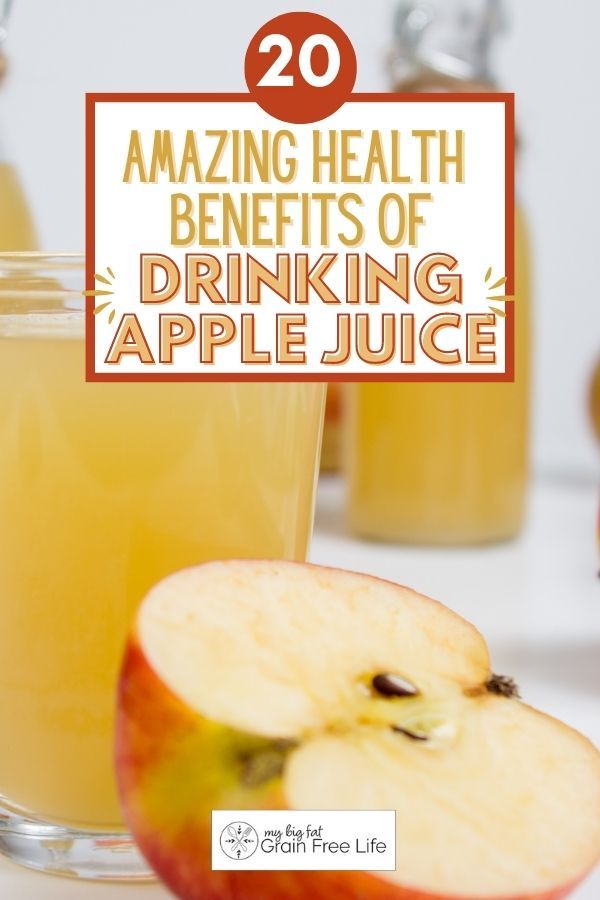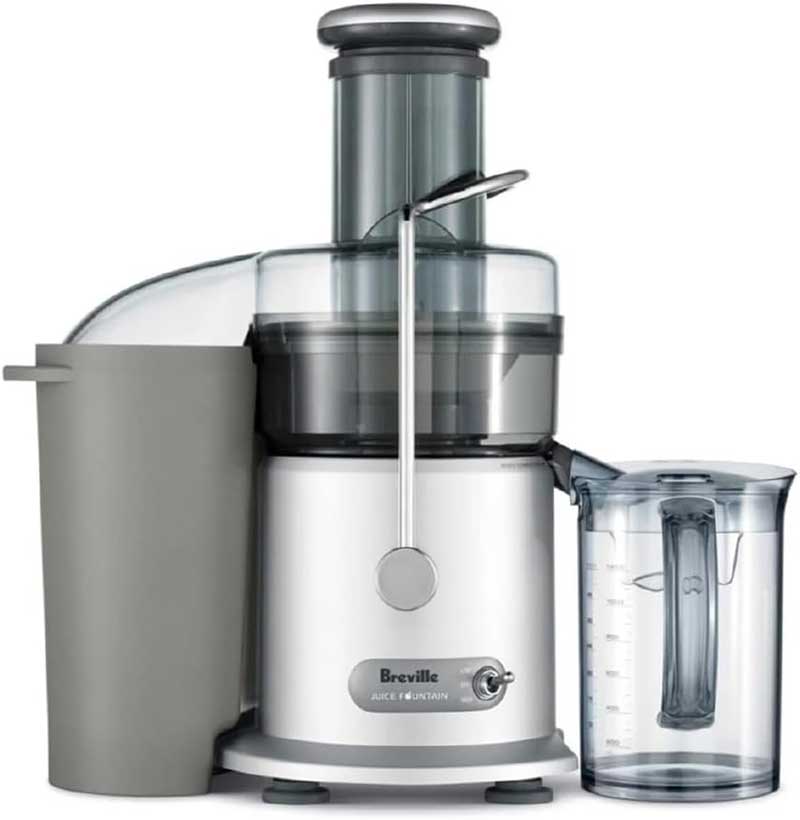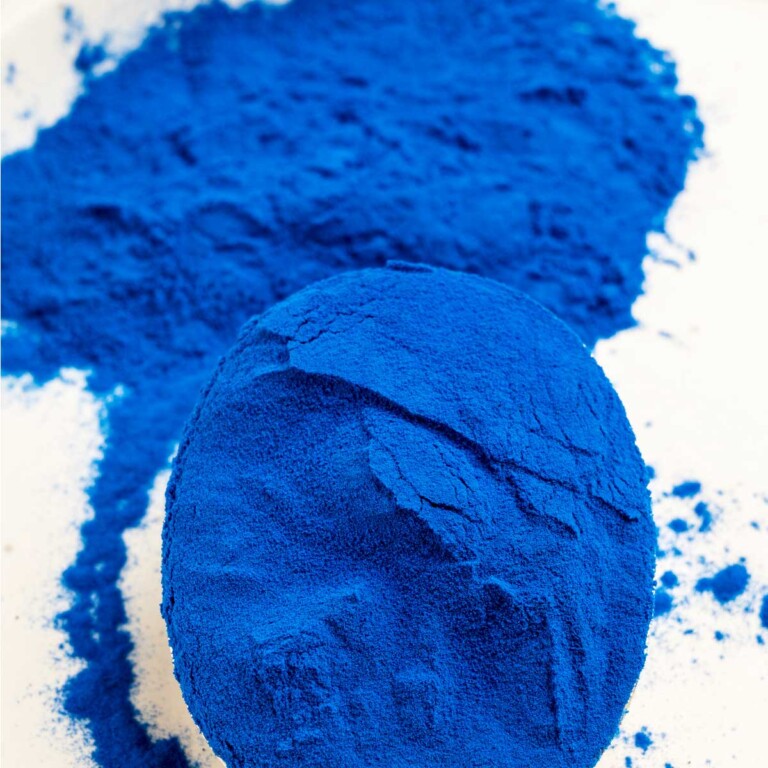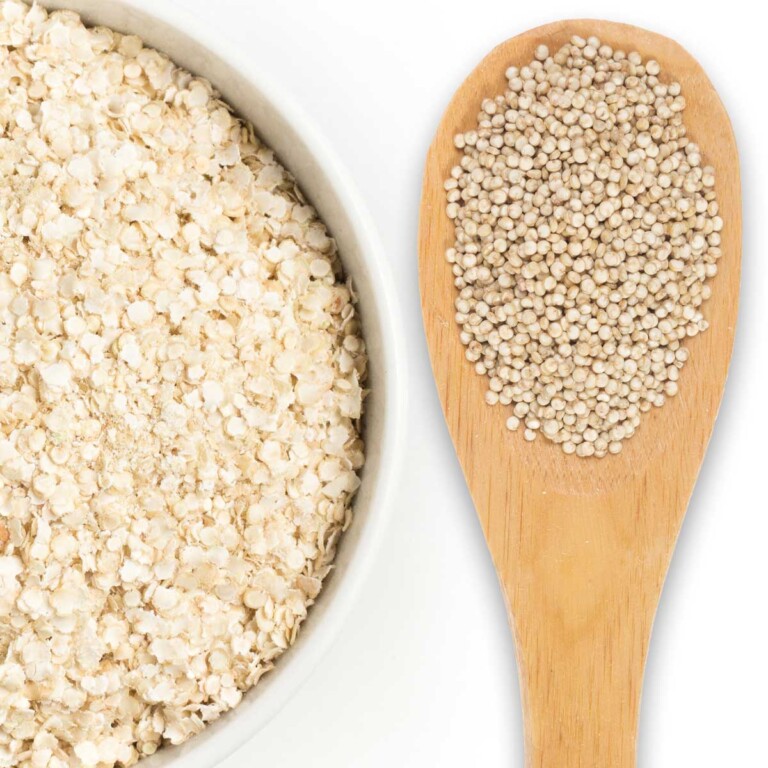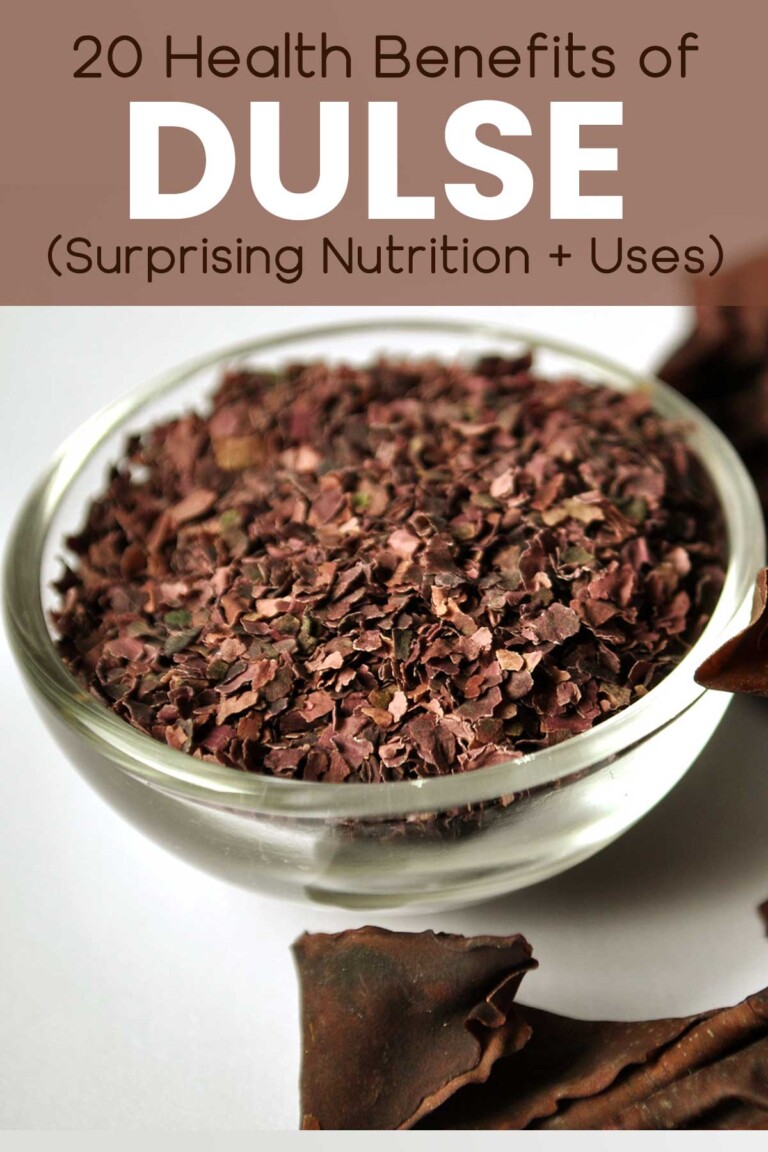20 Amazing Health Benefits of Apple Juice
This post may contain affiliate links. If you make purchase after clicking a link, I may receive a commission at no extra cost to you.
Last Updated on June 29, 2023
Apple juice isn’t just a drink that you water down for your toddlers. There are many amazing health benefits of apple juice for your whole family, especially if you juice it fresh yourself.
Health Benefits of Apple Juice
Apple juice is a favorite juice of many, and it often brings back memories of childhood. It is sweet, refreshing, and hydrating but also provides various health benefits.
Apple juice is full of plant compounds called polyphenols. These compounds may help to lower the risk of different of chronic diseases and other health conditions.
Pure apple juice can help lower blood pressure, help prevent heart disease, strengthen the digestive system, cholesterol levels, and so much more!
Some people add fresh apple juice to other juices as a natural sweetener, such as kale juice or spinach juice (which totally needs some sweetness added!).
Some apples are more acidic than others, so if you deal with acid reflux, you can print this acid and alkaline food chart printable to discover which apples are more alkaine.
Read on to learn more about how adding a cup of juice to a healthy diet can bring about numerous health benefits.
Nutritional Facts Of Apple Juice
Just 1 cup of apple juice contains a small percentage of your daily nutritional value of vitamin C, vitamin E, calcium, iron and magnesium. One glass has 113 calories, 28 carbohydrates and 24 grams of natural sugars.
Apple juice benefits many systems in your body. Ready to learn more?
Health Benefits of Apple Juice
You might be wondering if 100% apple juice is good for you. Despite the natural sugar content, there are many amazing health benefits that drinking unfiltered apple juice can provide.
If you are on a special diet that limits sugar, such as the AIP diet, you will want to avoiding drinking apple juice, or at the very least drink half-strength apple juice by watering it down. You can also add a little apple juice to smoothies.
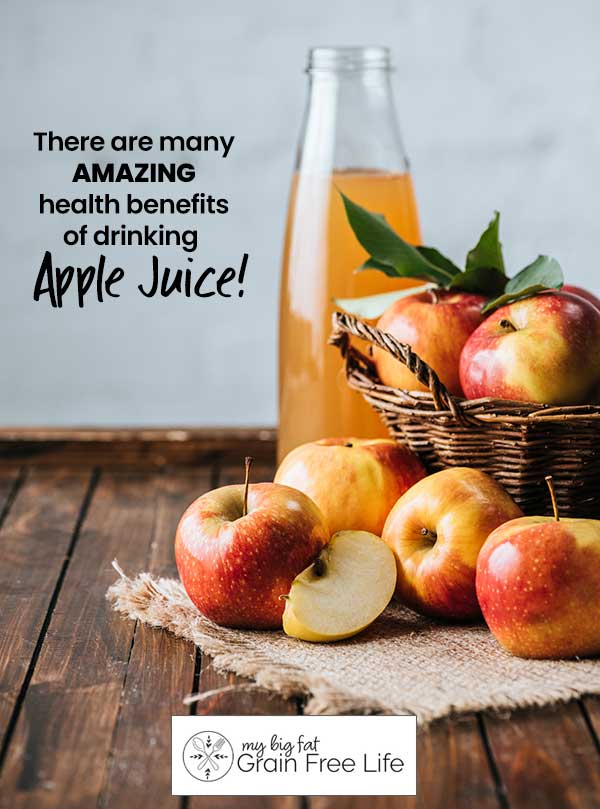
May Support Heart Health
There are compounds found in fresh apples and apple juice that can help reduce LDL cholesterol. This is important to help lower high cholesterol, which reduces the risk for cardiovascular disease.
May Relieve Symptoms Of Asthma
The free phenolic acids called flavonoids can could possibly reduce asthma and inflammation which can lead to improvement in asthma severity.
May Help Prevent UTIs
The acidity in apple juice may help prevent UTIs. Acidity is known to change the PH in your body, which helps prevent bacterial infections such as urinary tract infections.
Helps Improve Hydration
Apple juice is made up of 88% water and is amazing for hydration, especially in children. If you have a sick child that won’t eat or drink, watering down apple juice is a great way to keep them hydrated.
It is also a wonderful alternative to electrolyte drinks.
Provides Constipation Relief
Drinking apple juice can help aid in constipation and is a great drink for children who need to go to the bathroom. It works as a mild laxative if drank in small quantities.
May Aid Weight Loss
Polyphenols found in apple juice give you a satisfying feeling of being full after you drink a glass. Apple juice consumption may aid in weight loss by causing you to eat less and may also boost your metabolism.
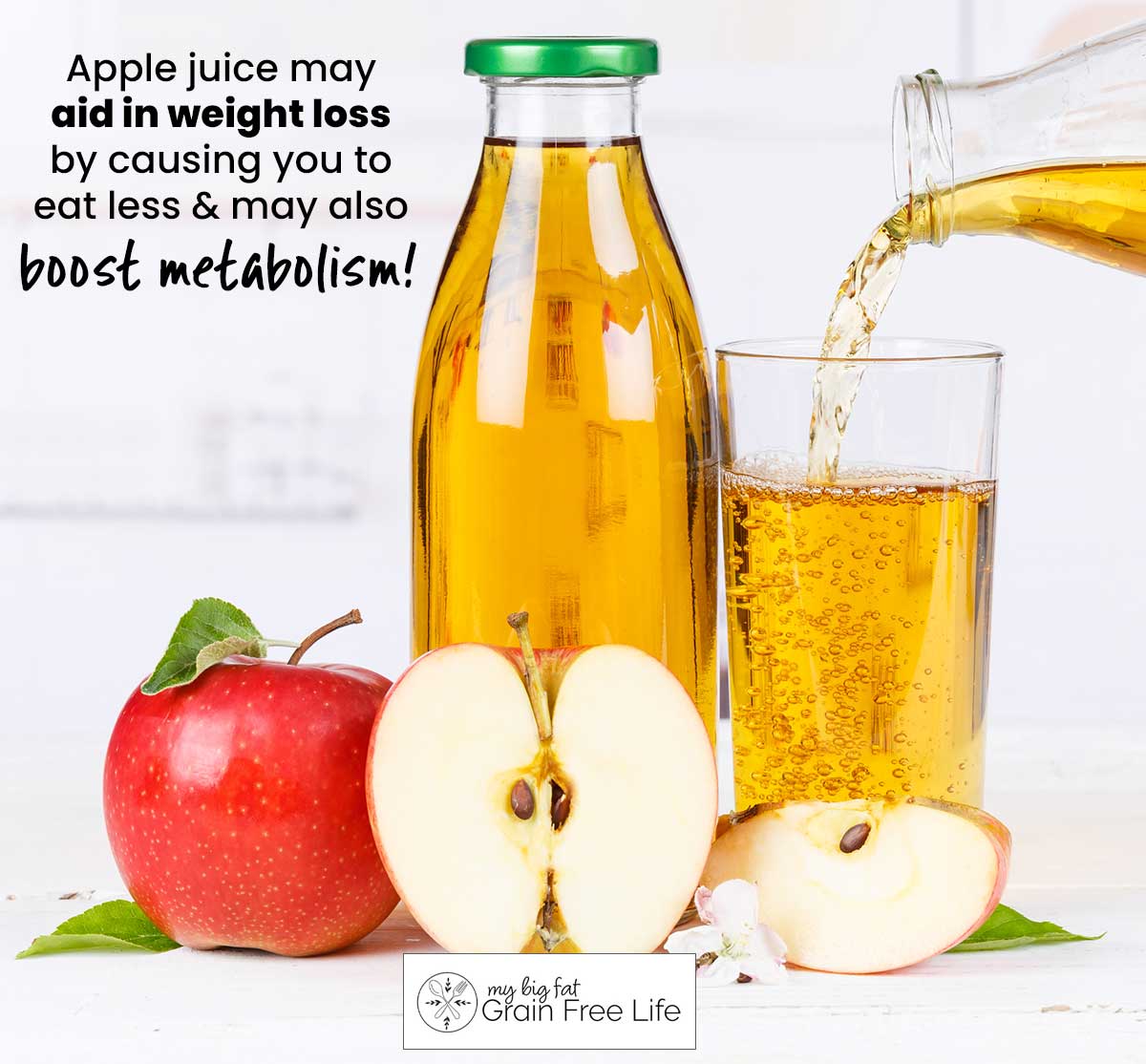
May Boost Immune System
The vitamin C found in apple juice works with the polyphenols that are full of antioxidants. These can help your body to fight free radicals and boost immunity.
May Promote Gut Health
The malic acid in apple juice helps to clean out the liver. The acidity in apple juice also helps prevent bacterial or gut infections.
May Help Control Blood Sugar Levels
Apple juice may actually help diabetics to control their blood sugar levels. Apples are the safest fruit for diabetics to enjoy, and drinking apple juice has been show to not spike blood sugar levels like other sugary drinks.
May Boost Metabolism
The pectin fiber in apples can help to boost metabolism. Drinking apple juice also help you to feel full and reduce the amount of food you eat.
May Have Anticancer Potential
Apple juice is high in antioxidants, which may help to prevent oxidative stress that can cause damage to cells.
Recent studies have found that consuming apple juice has been linked to a lower chance of developing colon or lung cancer.
May Help Protect The Brain
Studies have shown that apple juice may support brain function as you age.
The antioxidant activity found in the polyphenols may shield the brain from damage of free radicals. Patients with Alzheimer’s disease who drank 1 cup of apple juice daily for a month showed that their anxiety and restlessness improved by over 25%!
May Promote Hair Growth
Apples contain biotin, which is a natural growth steroid for hair and nails. Consuming apple juice can help to strengthen the roots and stimulate hair growth.
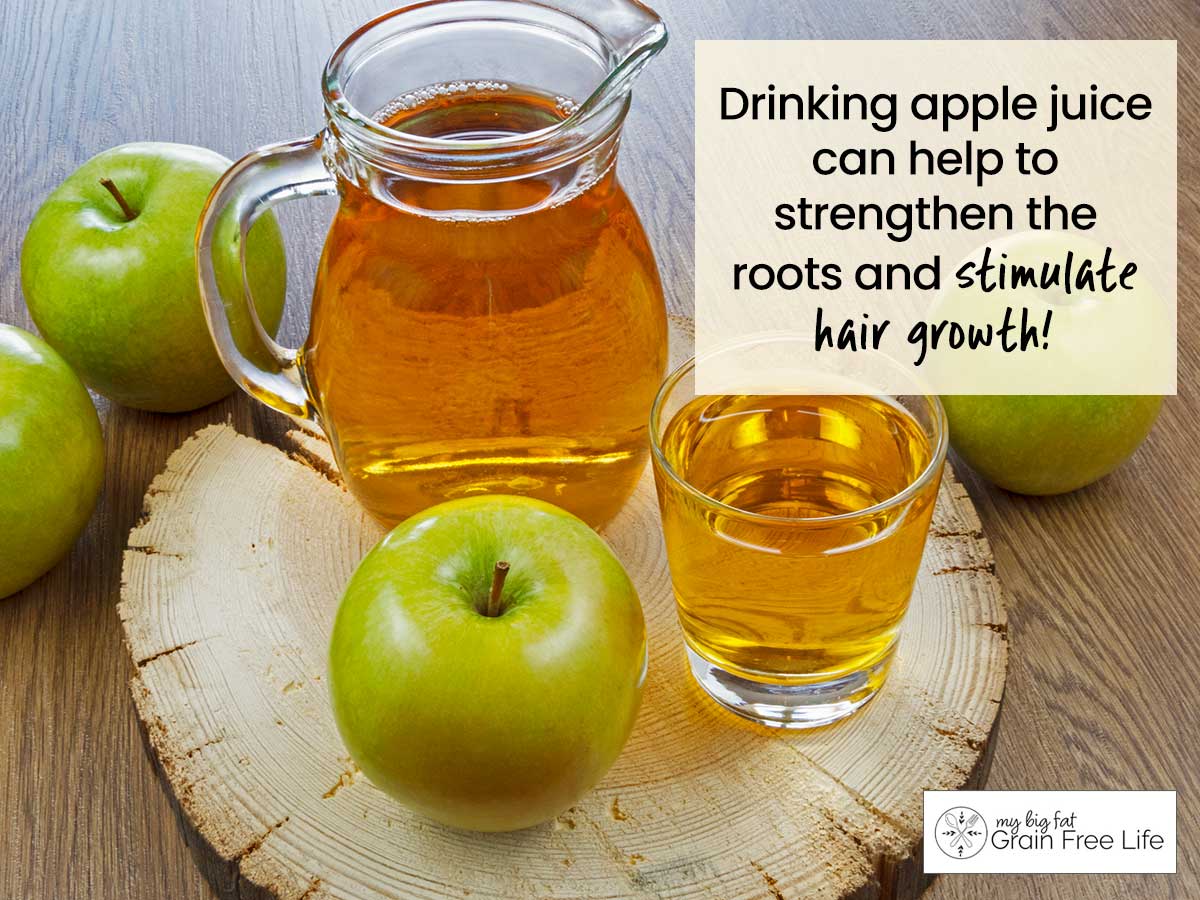
May Improve Skin Health
Since apple juice protects the body from free radicals, it may also help improve skin health. It can brighten your complexion and is hydrating, which can help reduce the appearance of fine lines and wrinkles.
May Help Prevent Anemia
Apple juice is known to help the body absorb iron. If you are low in iron, make sure you take your vitamins and minerals with a glass of apple juice.
May Improve Eye Health
Apples are rich in bioflavonoids, which are known to help improve vision health.
May Improve Liver Function
The malic acid that is found in apple juice helps to open the ducts to the liver. Apple juice is great to consume before doing a liver detox or flush as it helps the liver to flush more easily.
May Improve Memory
Apple juice may help to prevent the decline of a neurotransmitter called acetylcholine. This neurotransmitter is present in people with Alzheimer’s disease.
Contains Beneficial Plant Compounds
Apples are abundant in polyphenols. These beneficial plant compounds can protect cells against oxidative stress and inflammation.
Downsides to Apple Juice
While there are many health benefits of apple juice, it is important to understand potential side effects. When drinking any fruit or vegetable juice, moderation is key!
High in Sugar
All the calories in a glass of juice come from the carbs, fructose, and glucose that are naturally occurring in the fruit. One 8 oz glass of apple juice has a whopping 24 grams of sugar.
Low in Fiber
One cup of delicious juice only contains 0.5 grams of fiber, whereas a medium-sized apple with the peel has 4.5 grams of fiber.
Low in Vitamins and Minerals
One cup of apple juice contains a very small percentage of your daily value of vitamins and minerals and ascorbic acid is usually added to the juice.
Gastrointestinal Problems
Excess drinking of apple juice can cause gas and diarrhea due to the amount of fructose and sorbitol.
Risk of Kidney Stones
Drinking too much apple juice can increase the risk of a particular type of kidney stone called calcium stones.
May Promote Tooth Decay
It is well known that drinking fruit juice leads to tooth decay, especially in children. Apple juice is known to erode tooth enamel more than any other juice.
Blood Sugar Spikes
Due to the high sugar and low fiber content found in juice, it can cause blood sugar spikes if it’s drank alone. When paired with a protein, it won’t spike blood sugar as fast.
The Best Apple Juice to Buy
If you want to purchase apple juice make sure you are selecting non-GMO, organic apple juice or a 100% juice that is not from concentrate.
You should also look for unsweetened apple juice that’s raw and unfiltered on the label.
What’s the difference between cloudy and clear apple juice?
There are two classifications of apple juice: cloudy and clear. Both types of juice are processed in a very similar way in factories. The difference is in one way that it is processed.
Clarification and filtration systems are used to make clear apple juice. The juice is clarified with an enzyme preparation, then ran through a drink filtration system to make the juice transparent.
The enzyme that is introduced to the juice can strip it of its natural antioxidants.
A cloudy appearance is created by homogenization, and since it doesn’t use an enzyme, it keeps its antioxidants in tact. The cloudiness that you see is the apple solids and particles that aren’t strained out like they are in clear juice.
How is Apple Juice Made?
In a factory, whole apples are first inspected to make sure there is no bruising. Then they are washed. Afterwards, the raw apples are then macerated into a mash by a grinder or mill.
Next, the mash is moved to a press that extracts the juice. For clear juice, enzymes are then added to the juice. After this process, the juice is filtered and bottled.

How to Juice Apples
You can often find pure, unfiltered apple juice at select grocery stores. If you prefer to make it yourself, the easiest way to juice apples is with a juicer.
First, get your fresh fruit and wash it very well. You do not need to core the apples with a juicer. Just cut them in half and put them in the juicer and press down. Some prefer to add filtered water because the juice is very sweet.
Adding a splash of lemon juice or a whole lemon helps prevent browning.
Apple Juice Vs Apple Cider
Apple cider is a drink that is found most often in stores around the fall months during apple harvest time. It’s often fresh, unfiltered, and unpasteurized. Many apple ciders have spices added to them.
Apple juice is clearer and usually filtered and pasteurized, which gives it a longer shelf life.
Final Thoughts
Whole fruits are always the better choice, but if you would like to partake in this sweet drink, keep your consumption of apple juice to one small glass a day. If having a healthy body is important to you, then consider adding apple juice in moderation to your diet.
Sources:
- https://erj.ersjournals.com/content/29/6/1161
- https://www.ucdavis.edu/news/heart-benefits-apples-and-apple-juice
- https://www.webmd.com/alzheimers/guide/understanding-alzheimers-disease-basics
- https://pubmed.ncbi.nlm.nih.gov/18855307/
- https://pubmed.ncbi.nlm.nih.gov/35215471/
- https://pubmed.ncbi.nlm.nih.gov/30713187/

